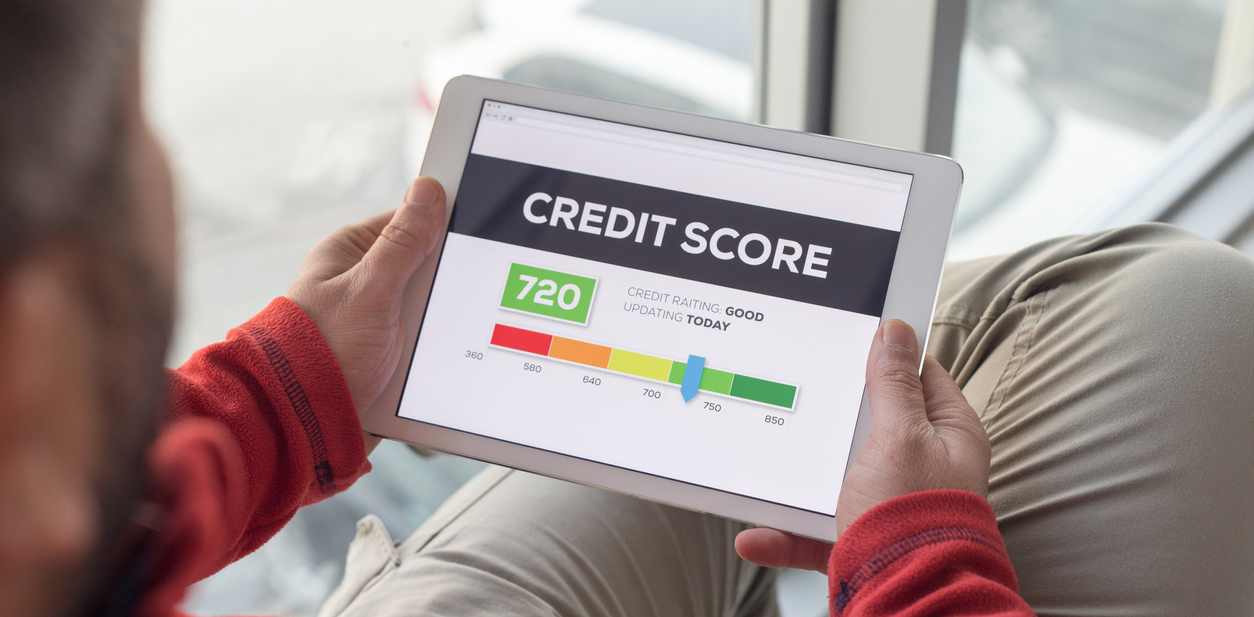The pandemic has impacted auto loan refinancing applications. Here’s why.
In just a short time, the coronavirus pandemic has changed a lot about how we function as a society. Every industry has been impacted in one way or another — and that includes financial services.
The recent rate cuts by the Federal Reserve have made loans much more attractive to borrowers. So much so, that applications for both new and refinance mortgage loans have continued to rise, even as unemployment claims reach new highs.
Similarly, car loan refinancing has seen an upswing of application activity. Within the first two weeks of the rate cut announcements in March, RateGenius saw a 30% increase in applications as auto refinance rates dropped. In April, on average, RateGenius customers saw their payments decrease by $82 after refinancing, and 32% of customers were able to save over $100 per month on their car payments.
In April, on average, RateGenius customers saw their payments decrease by $82 after refinancing, and 32% of customers were able to save over $100 per month on their car payments.
While this news is great for customers who are itching to save money, it is challenging for lending institutions that are not only trying to keep up with the demand, but also trying to balance the unknown risk of borrowers’ ability to continue paying on their new loan months or years from now — all in a situation that has never happened in our own lifetimes.
As a result, we’re seeing lending institutions across the industry — not just lenders in the RateGenius network — require more information to get approved for an auto refinance loan.
Here’s what you need to know about refinancing your car loan in the times of COVID-19.
How to Qualify for Car Loan Refinancing During the Pandemic
Since auto loans and refinance loans are secured loans, lending institutions want to make sure you can fulfill the fine print of your loan contract. In other words, they want to make sure payments will be made through the end of the loan term.
Basically, your refinancing application answers the following three questions for lenders:
3 Questions Your Refinancing Application Answers
- Is your vehicle in good condition, enough to last the life of the loan?
- Do you owe more on your loan than your vehicle is worth? If so, by how much?
- Will you be able to make payments as agreed until the loan term ends?
What is needed to qualify for a car refinance loan hasn’t really changed. However, some of the requirements may be more strict due to the pandemic.
The following qualification requirements are what you can expect across our own lending network.
1. Your vehicle
- Age: Under 12 years old
- Mileage: Less than 125,000 miles
- Type: Must be personal use
2. Your loan
- Loan-to-value (LTV) ratio: Generally 125% or below, though some lenders may approve an LTV of 130% or higher if other areas of your application are strong.
Car (LTV) Loan-to-Value Calculator
A loan-to-value ratio over 100% means you owe more on your loan than your vehicle is worth. An LTV over 125% can make it harder, but not impossible, to qualify for a refinance loan.
If your LTV is less than 100%, your car's value is higher than what you owe on your loan. The lower your LTV, the better.
3. You (and your finances)
- Age and citizenship: Must be at least 18 and a U.S. citizen to refinance with a RateGenius lender
- Credit: Your credit score and history may also impact what type of refinance offers you may receive.
- Employment Must be currently employed. Self-employed applicants may be required to provide tax statements or other documents.
- Proof of Income: You must provide current** proof of income that demonstrates you’re able to pay back the loan as agreed. This also means that unemployment income may not be accepted as the sole source of income by most lenders. (More on this below.)
- Debt-to-income (DTI) ratio: The lower the better. For auto loans and refinancing, the DTI industry average is around 45 to 50% based on your credit qualifications. RateGenius analysis found that from 2015 to 2019, 90% of approved auto refinance loan applicants had a DTI of less than 48%. (Calculate your DTI here.)
**Because of the drastic rise in unemployment since March, many lenders are requiring proof of income within the last 10 to 14 days. Lenders may also ask for additional documentation.
Can I Refinance My Car Loan If I’m Currently Unemployed?
Here’s the deal: Unemployment income is not accepted as the sole source of income by most lenders across the U.S. Your income source must be consistent for the term of the loan.
“This is a difficult topic in general but especially given what’s going on right now,” says RateGenius Credit Consumer Manager Joel Benavides. “Typically under normal circumstances, unemployment benefits last anywhere from 20 to 26 weeks depending on the state, and therefore can be considered irregular to qualify for an average loan term of 60 to 72 months.”
Lenders need to know that you’re able to make payments beyond the expiration of any unemployment benefits. If your loan term is 60 months but your benefits are set to expire in 26 weeks, how will you make payments on your loan after week 27? If you really need to refinance your loan, you can consider adding a cosigner or co-borrower with stable income, depending on your situation.
Lenders need to know that you’re able to make payments beyond the expiration of any unemployment benefits.
“Lenders are extremely cautious about taking on new credit risk with brand new consumers, without proof of existing income, to be able to afford the new payment consistently for the term of the loan,” explains RateGenius Vice President of Lender Management Julie Shinn. “When lenders are reviewing credit applications, they’re looking at the ability and stability of the borrower. Bringing on new debt with the high probability of default is something lenders are going to shy away from.”
There are lenders that are offering special types of refinance loans, like programs for furloughed employees. However, keep in mind that these programs are not very common and may still have strict eligibility requirements.
Can I Defer My Car Payments?
If you have a car loan that you’re not able to afford because of the pandemic, your current lender may be able to help. Lending institutions across the country have put in place programs for existing borrowers who have lost income as a result of the coronavirus.
“Lenders have created special programs for their existing customers to offer assistance through the pandemic” advises Shinn. “My suggestion to anyone struggling to make their payment right now would be to reach out to your existing lender to see if they can assist you during this difficult time.”
Lenders are more willing to make concessions for their existing customers to ensure committed debt can eventually be repaid in the long term.
RateGenius has collected a list of nationally-recognized lenders who are offering COVID-19 assistance, but there are many other credit unions, banks, and online lenders across the country that have similar programs. You’ll need to reach out to your lender directly to get more information.
But don’t wait until you’re behind on your payments — this could hurt your credit and make it more difficult to qualify for a loan or other type of credit product later. Reach out to your lender as soon as you know you won’t be able to make your car payment.
Other Challenges When Refinancing Auto Loans During the Pandemic
In simplest terms, car loan refinancing is when you get a new car loan to replace your old car loan. The reasons can vary: lower interest rate, better loan term, removing a person off of the loan, and so forth.
However, there is much more to it behind the scenes — even after the old lender is paid off and the new loan is closed.
Vehicle Titles
A title is a legal document that serves as proof of ownership for a vehicle. It’s issued by your state motor vehicles department and includes information like your vehicle VIN number, license plate number, as well as the lien holder and the registered owner.
If you currently have a loan on your vehicle, the lien holder listed on the title is the lender and the registered owner is you.
Your lender holds the title to your vehicle, unless you live in one of the nine title-holding states (Kentucky, Maryland, Michigan, Minnesota, Missouri, Montana, New York, Oklahoma, Wyoming) then the registered owner holds the title. The lien holder is still listed on the title.
When you refinance your car loan and get a new lender, your title must be changed to remove the old lien holder and add your new lender. The exact process varies by state, sometimes county, and is much more complicated than it sounds.
RateGenius handles all titling on behalf of our customers. However, sometimes customer cooperation is required to get this process finalized.
DMV Closures and Retitling
Since the pandemic was declared in March, most, if not all, DMVs were closed; some states began to reopen in May. Title transfers are very much a paper-based process, so these closures have resulted in some challenges — and creative problem solving — in order to complete the refinancing process for our customers.
For example, electronic titles or e-titles, are currently accepted in a number of states, though not all. RateGenius coordinates with our lenders to complete the title process electronically wherenever possible.
The RateGenius team is currently working with DMVs and organizations across the country to test new methods of retitling that meet state requirements but also keep employees and customers safe.
DMV Closures and Expired Registration
Applicants with recently expired or soon-to-be-expired driver’s licenses or registration are also impacted, since they’re unable to renew in person.
Many states are allowing extensions on licenses and vehicle registrations, that expired during the period of the DMV closures for the purporse of processing teh title tranfers. Lenders are honoring those extensions, as well. Please refer to your state’s DMV website for the most recent information on these extensions.
In addition, some states have been allowing online renewals. If you live in one of these states, you’ll need to follow those procedures in order to move forward with the refinancing process.
There are some states (Alabama, Georgia, Kansas, Massachusetts, Mississippi, Rhode Island, and District of Columbia) where borrowers must go to the DMV in person to make adjustments to the owners listed on the title. For example, if you’re completing a lease buyout or adding or removing an individual on the title, these transactions much be completed in person. Several third-party fulfillment companies, including RateGenius, may require necessary ownership changes be completed prior to beginning the refinance process.
Notaries and Power of Attorney Forms
When transferring a title from one lien holder to another, you have two options: You can head over to the DMV and do it yourself, or you can sign a power of attorney (POA) form and have a third-party (like dealer, lender, or broker) do it for you.
During car loan refinancing, a POA allows RateGenius to handle title changes on your behalf.
In many states, a power of attorney form is required to be notarized. This means you need a notary, a public official that has the legal authority to serve as an official witness for a variety of documents. They’re an impartial witness, and their seal means that the document has been vetted and is authentic — i.e. not fraudulently signed. Notaries are often needed in real estate and auto loan transactions.
With the pandemic, it’s been more difficult for customers to find a notary, and understandably, customers don’t want to go somewhere and risk exposure to the coronavirus.
RateGenius has been working behind the scenes to offer some solutions for our customers and other borrowers across the country. When finalizing your application, your loan officer will tell you which documents are required to be notarized.
How to find a notary near you
Notary services are offered at local grocery stores, pharmacies such as Walgreens or CVS, or the UPS store in most communities. If you’re having trouble finding an open notary office, you can try hiring a local notary through one of these websites.
Refinancing During the Pandemic Is Possible
Even with these challenges, the RateGenius team has been working quickly to meet customer demand. We’re continuing to monitor changes within our network of lenders, titles, and other guidelines and requirements.
If you’re hoping to save money during the pandemic by lowering your car payment, it’s definitely possible. Thousands of borrowers have done so already. Just be prepared for a few additional steps.
Questions about refinancing during the COVID-19 pandemic? Give us a call at 866-728-3436. We’re happy to help.
;)
















